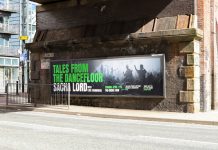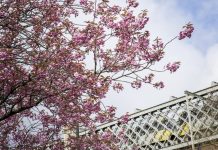The glare of almost perpetual digital day light is stealing those all-important fundamental relationships with our nocturnal cities.
Now a new study seeks to encourages us to embrace the night and regain that rare liberation and exhilaration in the urban landscape where the dark can provide a rich potential for our senses.
‘Dark Matters’ is a new book by Nick Dunn Professor of Urban Design at Lancaster University which presents a new way to think about cities at night. Much of his night walking was done in Manchester and the book contains sneak wnde full descriptions of the nocturnal city.
As he explains in the forward to his book, much of its sketchy origins are rooted in walking cities in the night, beginning in his teenage years Around Greater Manchester, “exploring the coal mined landscape, the abandoned buildings , industrial detritus and decay.”
While the history of walking through cities, is Nick says, as old as cities themselves, walking at night offers something different, ” having the capacity to alter our ingrained, seemingly natural prepositions towards the urban surrounds and our perceptions to it.
Take this piece as he walks along the Rochdale Canal as it follows Whitworth Street, “murky grey brown lava sludgng past unnoticed, behind the blank looks of apartments and offices.”
The night transforms the landscape, ” the pattern cut suburban landscape loses it edge ” as darkness descends, while the mind slowly percolates the day’s concerns.
Professor Dunn proposes that our contemporary world of commerce has robbed urban dwellers of something more than sleep. He claims we have also lost the tradition of night walking and all the attendant adventures that may be found in the urban night and rather than something to be feared, this book contends that walking in the nocturnal city is an exaltation of endless discovery and joy in being alive.
It is, says Professor Dunn, a manifesto for thinking and doing things differently and a chance to escape from the everyday, and walking unlike any other mode of transport as it is the only way that we move ourselves through space and connect with our surroundings.
The Salford born Nick Salford told About Manchester that he enjoys walking, then when a problem with his sleeping occurred, he tried to cure it with walking at night, in the late autumn and began to discover something unusual, seeing the city landscape in a different way. ” You normally go into a city centre for a purpose,” he tells us, ” but this time there wasn’t any purpose.”
He was struck by how quiet it was , “walking around, you are in the moment, you can let your mind wonder.” He was completely struck by the architecture, ” one of the things that you see is the shadows, of the features, glass and steel does have the same effect at night as it does during the day light hours”.
Nick also noticed how safe it was and how walkable it is. In someways he tells us, the book has become a love letter to the city, not an architectural history. Some authors have written about a right away and a wrong way but for Nick, there isn’t a right way, it is all about just appreciating the setting.
Dark Matters: A Manifesto for the Nocturnal City is published by Zero Books.







